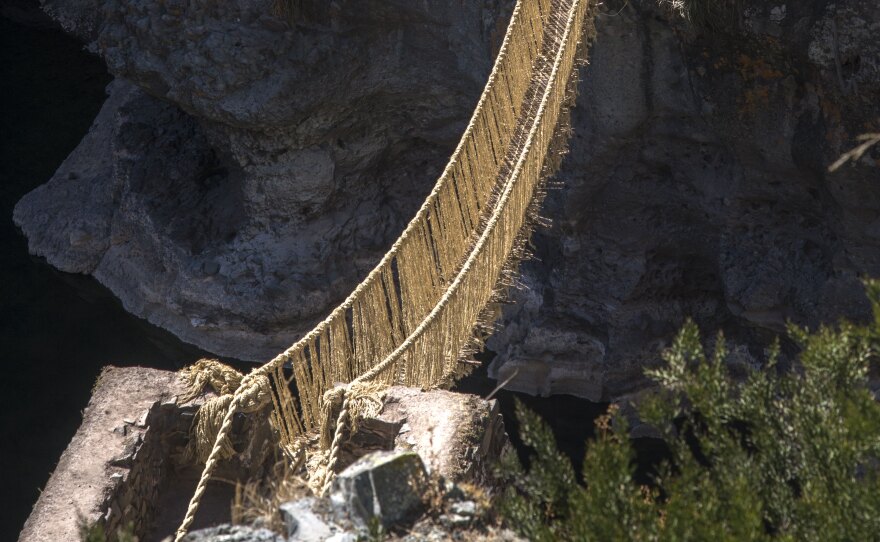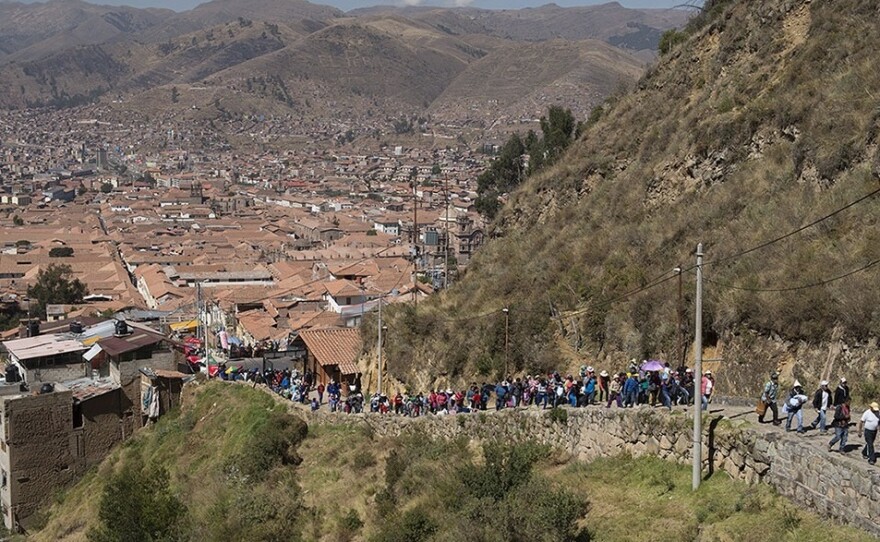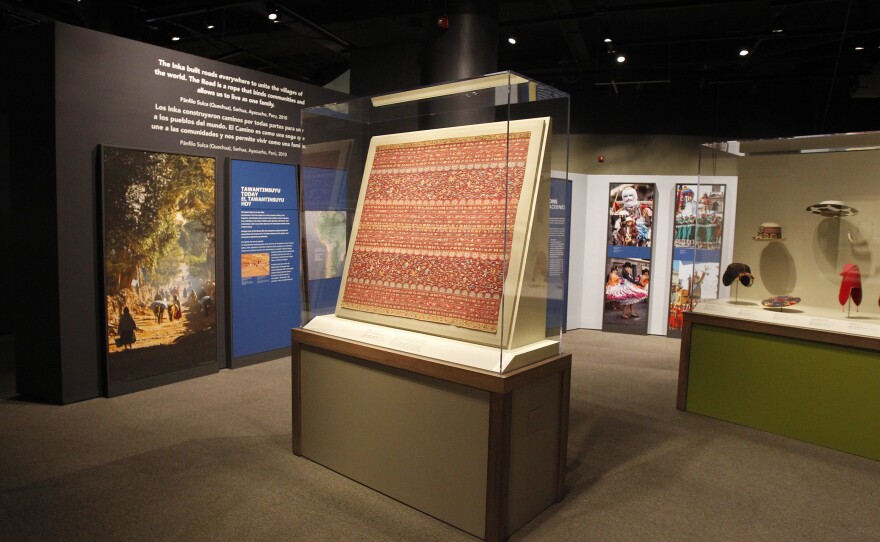


One of history's greatest engineering feats is one you rarely hear of. It's the Inca Road, parts of which still exist today across much of South America.
Back in the day — more than 500 years ago — commoners like me wouldn't have been able to walk on the Inca Road, known as Qhapaq Ñan in the Quechua language spoken by the Inca, without official permission.
Fortunately, I have Peruvian archaeologist Ramiro Matos by my side. He is the lead curator of an exhibition at the National Museum of the American Indian called "The Great Inka Road: Engineering an Empire."
That's "Inka" with a K, as it's spelled in Quechua. And today, we're taking a virtual journey down what was once more than 20,000 miles of road traversing some of the world's most challenging terrain — mountains, forests and deserts.
The Inca road began at the center of the Inca universe: Cusco, a city in the Peruvian Andes, said to be built in the shape of a crouching puma. It actually was not a single road but a network of royal roads, an instrument of power designed for military transport, religious pilgrimages and to move supplies.
"As far as the road stretches, the empire stretches," says Ramos.
The road spanned modern-day Argentina, Chile, Peru, Bolivia, Ecuador and Colombia. The museum exhibition's photographs of it are vertigo-inducing: Massive pathways wind up tall mountains and touch the clouds; sturdy staircases unwind into lush, green valleys, as if the brutal nature of the landscape had been just a small inconvenience to work around.
"The highest part of the road crosses from Argentina to Chile, nearly 20,000 feet high," Matos says.
How did they build this?
"Local experience."
The Inca were master engineers. But like most conquerors, they also tapped local experts. The exhibition highlights a long bridge made of woven plant fibers, still in use today.
"There's an inventory of over 100 bridges in all of the empire — this is one of the few which remain. It's made with icchu or puna grass," Matos says.
The Inca Empire only lasted about a century. When the Spanish conquistadors arrived, that intricate road made it easier for them to move around and access precious mines that the Incas themselves had been exploiting.
Today, most of the old road has been destroyed — both by the Spanish conquest and by modern highways. Some parts remain and are still in use.
Schoolchildren around the world learn about the ancient Roman roads and the Great Wall of China — but most people have heard little about the great Inca Road. Kevin Gover, the director of the National Museum of the American Indian, says the road is largely forgotten because it just doesn't fit into a typical Western narrative.
"Indians play one of two roles in that narrative," he says. "They are either the opponents of civilization or they are literally part of the nature that was there to be settled and conquered. We're not taught that some of these were very advanced civilizations, because that means this wasn't a wilderness. And that means somebody had to be displaced. And it wasn't necessarily a noble endeavor."
That's why the museum created the exhibit, which is on display till 2018.
The great Inca Road reminds us that, once upon a time, all roads led not to Rome — but to Cusco, Peru.
Copyright 2015 NPR. To see more, visit http://www.npr.org/.






